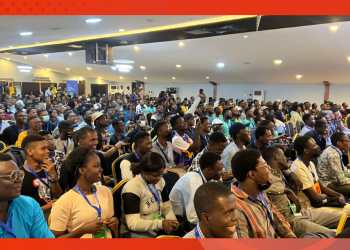The quiet exodus of African tech talent has become a full-blown crisis. Every year, hundreds of thousands of skilled developers, engineers, and IT professionals pack their laptops and board flights to Europe, North America, and beyond.
Recent data shows Nigeria alone lost over 38% of its tech workforce to foreign companies between 2020 and 2025, costing the economy $2.3 billion in human capital investment. Meanwhile, these same professionals fuel billion-dollar tech ecosystems in their new host countries.
African Leadership Magazine reports that approximately 70,000 skilled professionals leave Africa annually. The pattern is consistent across multiple countries: talent flows out, wealth flows in through remittances, but innovation capacity diminishes.
Western countries have spotted the opportunity. Canada’s Global Talent Stream processes tech worker visas in just two weeks for qualified candidates. The UK’s Global Talent Visa offers fast-track entry for exceptional individuals in technology fields. Australia’s skilled migration program actively recruits engineers and developers from emerging markets.
These programs specifically target the skills gap in developed economies.
The competitive salaries, world-class infrastructure, stable electricity, reliable internet, and clear career progression paths are compelling. For an African developer tired of working around power outages and slow internet, the offer becomes irresistible.
Nigeria and Ghana suffered a devastating $2.3 billion loss in human capital as 38% of tech professionals emigrated between 2020-2025, according to recent academic research. This figure represents the total investment in education, training, and early career development that now benefits foreign economies.
The multiplier effect amplifies the damage. Each departing tech professional represents not just their individual contribution, but the startups they might have founded, the local talent they could have mentored, and the innovations that might have emerged from local market understanding.
Data from the National Population Commission shows the number of tech professionals emigrating has tripled over the past year alone. The “Japa syndrome”, a Nigerian term meaning “to flee”, has become a cultural phenomenon among educated youth.
Kenya’s government has facilitated the emigration of over 200,000 workers in the past two years, with plans to export 1 million workers by 2030, Reuters reports. While this policy generates foreign exchange through remittances, it simultaneously drains the local tech ecosystem of critical talent.
South African tech professionals find their skills in high demand internationally. Companies in Europe and North America actively recruit South African developers, offering salaries up to 70% higher than local rates when adjusted for cost-of-living differences.
As more senior professionals leave, remaining developers lose mentorship opportunities, and career advancement becomes limited. This encourages more talent to pursue international opportunities, accelerating the brain drain.
Remote Work: Staying Put While Earning Foreign Salaries
Some developers work full-time for international companies while remaining in their respective countries. This arrangement offers foreign-level salaries without the costs and complexities of actual migration.
Remote work platforms like Upwork, Toptal, and Andela have created pathways for African developers to access global opportunities. The best Nigerian developers on these platforms earn more than many local executives while maintaining their social connections at home.
However, this digital migration still represents a form of brain drain. The intellectual output serves foreign markets rather than local innovation needs. The developer’s time, creativity, and problem-solving skills contribute to solutions for customers in London or San Francisco, not Lagos or Nairobi.
African Governments Wake Up to the Crisis
Some African countries are fighting back with targeted retention strategies. Rwanda increased healthcare worker salaries and improved hospital infrastructure, successfully reducing professional emigration rates. Ghana’s “Year of Return” initiative offers tax breaks and investment incentives to diaspora professionals.
Nigeria’s Federal Government has launched the Digital Talent Initiative, though implementation remains patchy and underfunded. The country allocated increased budget to education and healthcare sectors, but these efforts pale in comparison to the scale of the challenge.
The fundamental issue remains economic opportunity. Until African economies can offer competitive compensation, modern infrastructure, and clear career advancement paths, talent will continue flowing toward countries that do.
Tech Hubs Fight to Keep Their Best Minds
Lagos, Nairobi, and Cape Town have emerged as major African tech hubs. Still, they struggle to retain top talent. Startups in these cities often train excellent developers who then migrate to better opportunities abroad.
Local tech companies are adapting by offering equity participation, flexible work arrangements, and professional development opportunities. Some partner with international clients to provide local developers access to global projects and competitive rates.
Infrastructure limitations, currency instability, and limited access to venture capital restrict what local companies can offer compared to well-funded international alternatives.
The Future of African Tech Talent
The brain drain crisis will likely intensify as global demand for tech skills grows and remote work becomes more normalized. African governments and businesses must act decisively to retain critical talent.
Successful retention requires coordinated efforts: infrastructure development, competitive compensation frameworks, improved governance, and creation of genuine opportunities for innovation and entrepreneurship.
Africa’s demographic dividend depends heavily on retaining and developing skilled human capital. Losing the current generation of tech talent could set back the continent’s digital transformation by decades.
African leaders can either create conditions that make staying attractive, or continue watching their brightest minds fuel other economies’ growth. The migration statistics suggest urgent action is needed before the trickle becomes a flood that’s impossible to reverse.
















